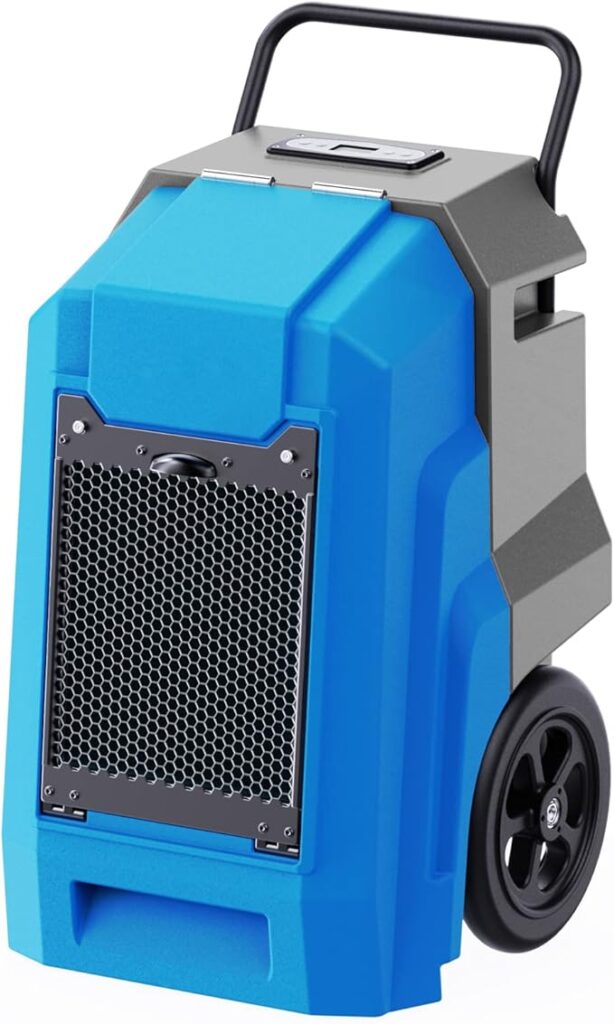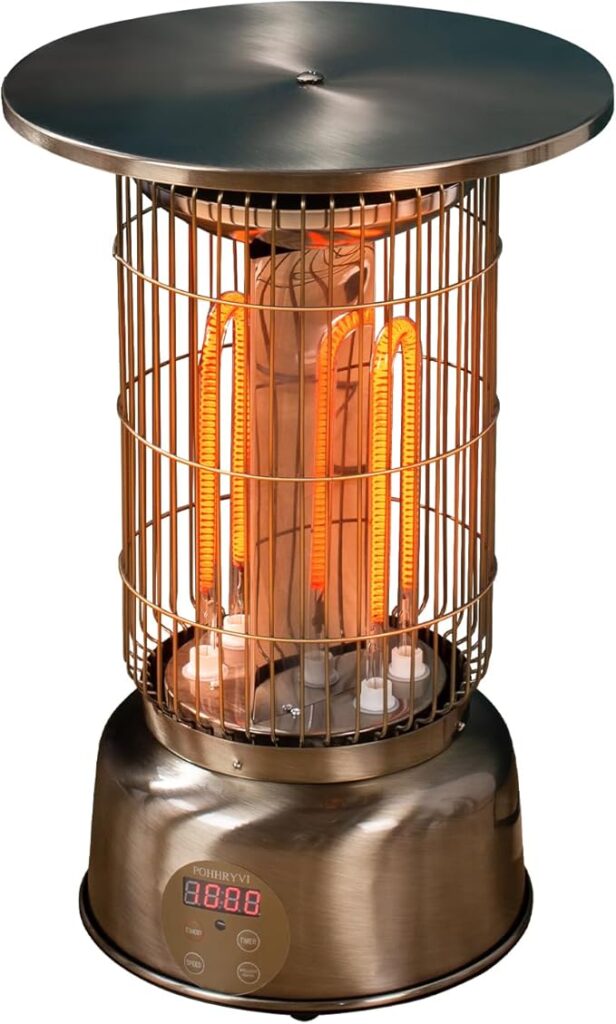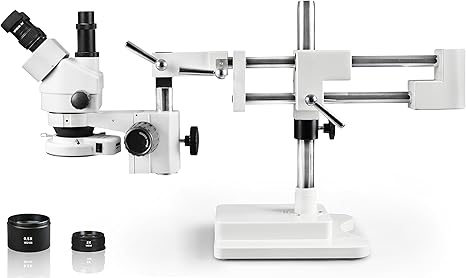How are you in Italian is “Come stai?” or “Come va?” for the informal speech and “Come sta?” for the formal speech, and if you want to ask a group of people how they are you can say “Come state?“

How do you say: How are you in Italian? (Informal)
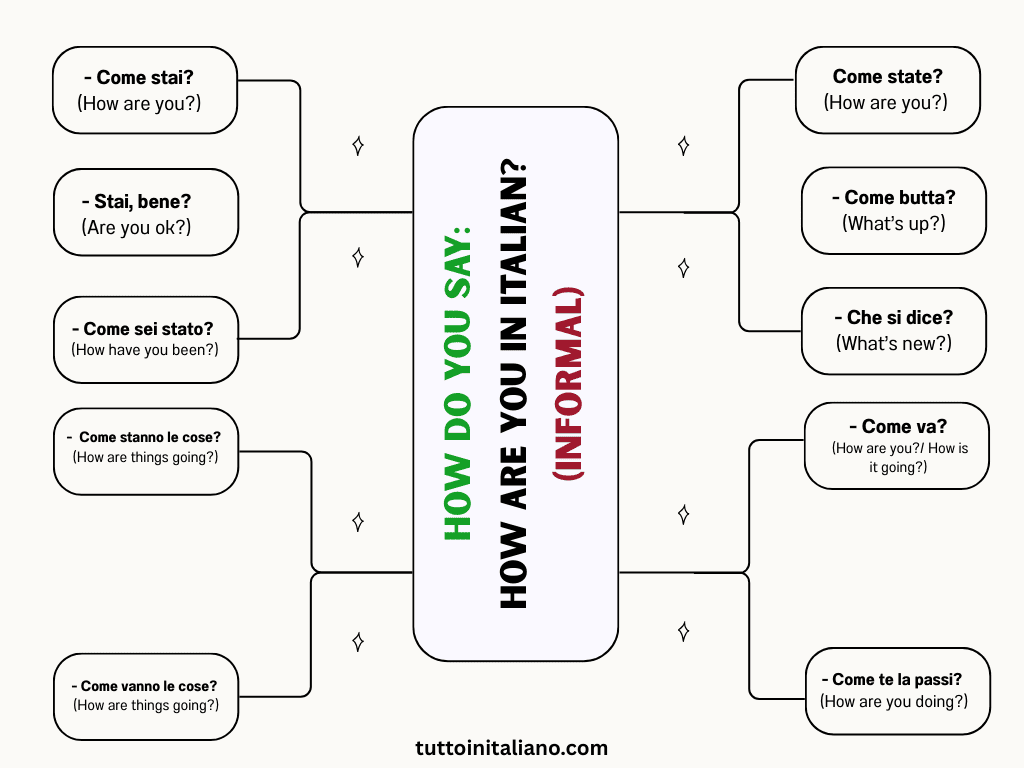
There are so many ways to ask someone how are you in Italian without being formal. But the most common and known ways are “Come stai?” which means “How are you?” and “Come va?” which means “How is it going?“
- Come stai? (How are you?) Singular
- Come state? (How are you?) Plural
- Stai, bene? (Are you ok?)
- Come sei stato? (How have you been?)
- Come stanno le cose? (How are things going?)
- Come va? (How are you?/ How is it going?)
- Come vanno le cose? (How are things going?)
- Come procedono le cose? (How are things?)
- Come te la passi? (How are you doing?)
- Come butta? (What’s up?)
- Che si dice? (What’s new?)
How do you say: How are you in Italian? (Formal)
The formal way to say: How are you in Italian is “Come sta?“
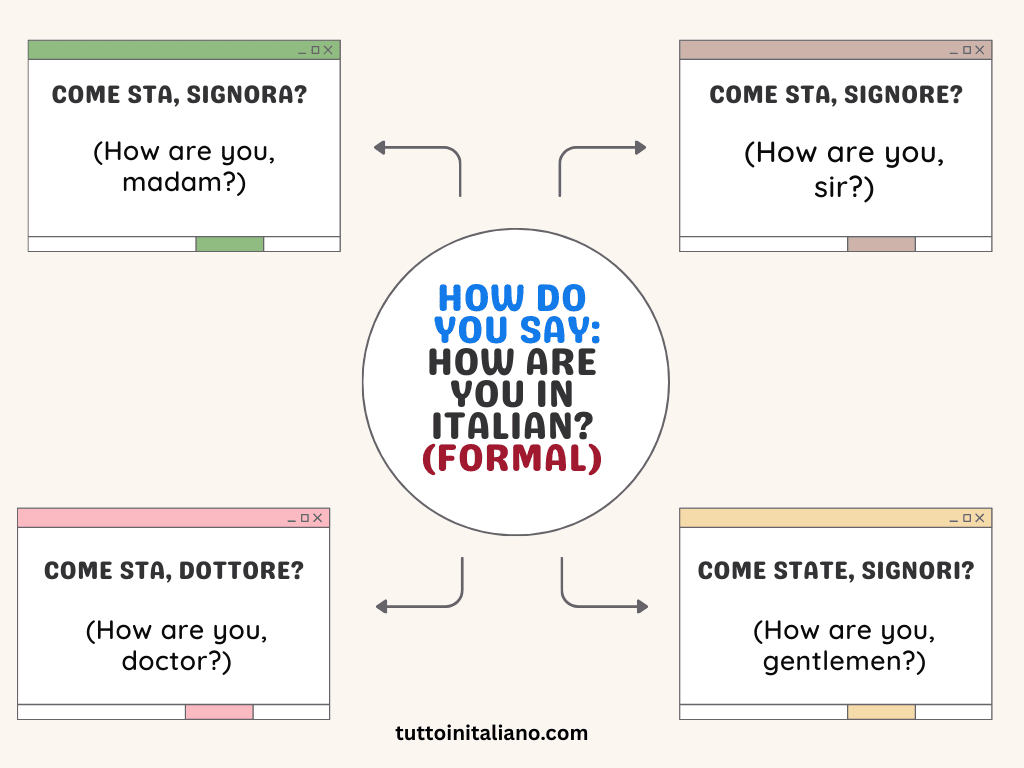
- Come sta, signora? (How are you, madam?)
- Come sta, signore? (How are you, sir?)
- Come sta, Dottore? (How are you, doctor?)
- Come sta, Professore? (How are you, professor?)
- Come state, signori? (How are you, gentlemen?)
What does come stai mean in English?
The question “Come Stai?” is a combination of two words ‘Come” which means “How” and “Stai” which is the second conjugation of the verb “Stare” in the present tense which means “to stay“, So as you can see Italians don’t use (verb to be>> Essere) to ask how are you? instead, they use the verb (To Stay>>Stare).
What does come va means in English?
The question “Come va?” is a combination of two words “Come” which means “How” and “Va” which is the third conjugation of the verb “Andare” in the present tense which means “To go“. and this verb is an irregular verb and has different forms when it is conjugated in Italian in all tenses.
Here is how the verb “Stare” and “Andare” is conjugated in the present tense:
| Stare (to stay) | Andare (to go) |
| Sto I Stay | Vado I Go |
| Stai You Stay | Vai You Go |
| Sta He Stays She Stays | Va He Goes She Goes |
| Stiamo We Stay | Andiamo We Go |
| State You Stay | Andate You Go |
| Stanno They Stay | Vanno They Go |
What is the difference between “Come stai” and “Come va?”
The main difference between “Come stai?” and “Come va?” is the meaning. Both expressions can be used in a general way to ask “How are you?” in Italian, But the meaning is slightly different.
Come stai? for example, means How are you? (In general) Meanwhile “Come va?” is a shortcut to “Come va la vita?” Which means “How life is going?” And as you can see that’s why it’s called “Come va?” because the question is not “How are you?” the question here is “How is (Your) life Going?” and life in Italian is a noun singular feminine which takes the third conjugation of the verb Andare (lei >>Va). So that will make the literal translation of “Come Va?” is “How it’s going?” And “It’s” here is a reference to “Life“.
How do you answer come stai in Italian?
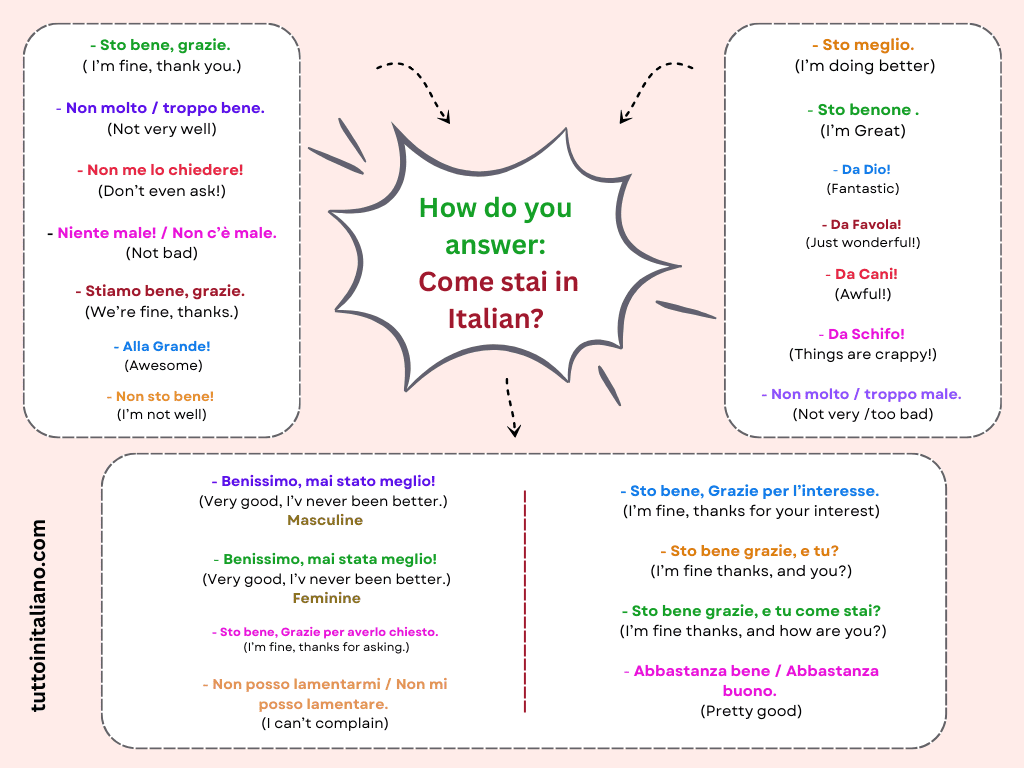
- Sto bene, grazie. ( I’m fine, thank you.)
- Sto bene grazie, e tu? (I’m fine thanks, and you?)
- Sto bene grazie, e tu come stai? (I’m fine thanks, and how are you?)
- Stiamo bene, grazie. (We’re fine, thanks.)
- Sto bene, Grazie per averlo chiesto. (I’m fine, thanks for asking.)
- Sto bene, Grazie per l’interesse. (I’m fine, thanks for your interest)
- Sto meglio (I’m doing better)
- Sto benone (I’m great)
- Benissimo, mai stato meglio! (Very good, I’v never been better.) Masculine
- Benissimo, mai stata meglio! (Very good, I’v never been better.) Feminine
- Da Dio! (Fantastic)
- Da Favola! (Just wonderful!)
- Da Cani! (Awful!)
- Da Schifo! (Things are crappy!)
- Alla Grande! (Awesome)
- Non sto bene! (I’m not well)
- Non molto / Troppo bene. (Not very well)
- Non me lo chiedere! (Don’t even ask!)
- Niente male! / Non c’è male. (Not bad)
- Abbastanza bene / Abbastanza buono. (Pretty good)
- Non molto / Troppo male. (Not very /too bad)
- Non posso lamentarmi / Non mi posso lamentare. (I can’t complain)
Amazon Ads
Other ways to ask and answer How are you in Italian.
| Tutto bene? | Everything good? |
| Va tutto bene? | Is everything all right? |
| Va meglio? | Are things getting better? |
| Come stai / Va oggi? | How are you doing today? |
| Stai bene? | Are you ok? |
| Tutto Ok? | Everything ok? |
| Tutto a posto? | Everything okay? |
The answer
- Bene! (Fine)
- Bene, e tu? (Fine, and you?)
- Bene, grazie. (Fine, thanks)
- Bene grazie, e tu? (Fine, thanks, and you?)
- Per ora tutto bene. (So far so good)
- Non proprio bene. (Not really good)
- Finora va tutto bene. (So far everything is fine)
- Me la passo bene. (Things are going well)
- Me la cavo. (I’m getting by just fine)
- Me la passo male. (I’m having a hard time)
- Non male. (Not bad)
- Si Tira avanti.(Life goes on)
- Niente di speciale. (Nothing special)
- Tutto Uguale! (Same as usual)
- Sempre le stesse cose. (Same as always)
- Il Solito. (Same old, Same old)
- Ho Visto giorni migliori/ Peggiori. (I’ve seen better/Worse days)
- Potrebbe andare meglio /peggio. (Could be better/ worse!)
| Come ti senti? | How do you feel? (Informal) |
| Come si sente? | How do you feel? (Formal) |
The answer
- Adesso sto meglio, grazie. (I’m better now, thanks)
- Mi sento male. (I feel bad.)
- Mi sento bene. (I feel good)
- Mi sento meglio. (I feel better)
- Non mi sento bene. (I don’t feel well)
- Sono un po’ stanco / stanca. (I’m a little tired)
